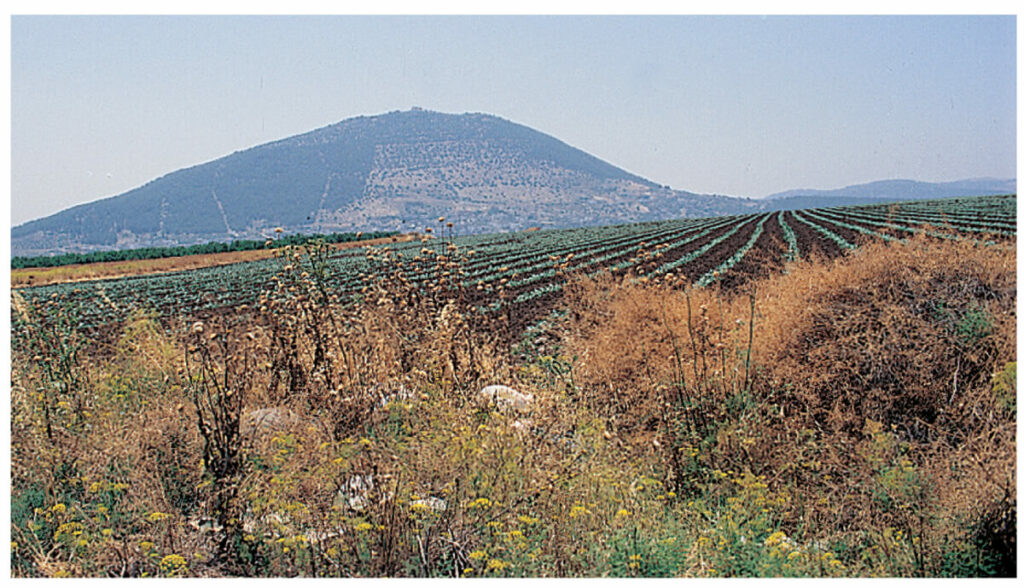
Matthew’s account of the transfiguration is the preeminent story of transformation. Just a few verses earlier Jesus tells his followers for the first time that he will suffer, die, and rise on the third day. Then he leads Peter, James, and John to a place away from the others to show them what it means to walk the path through death to resurrection.
In his transfiguration we see Jesus as both divine and vulnerable, belonging to both heaven and earth, residing in both ordinary and extraordinary worlds. His transfiguration terrifies his followers, but Jesus touches them gently and tells them not to fear.
This awakening to Jesus’ suffering moves the disciples from ordinary to sacred time. This vision disturbs their lives. The solid ground on which they stand shifts. Jesus’ transfiguration is a crossroad event for Peter, James, and John that casts new light on Jesus’ place in Israel’s history and their future as his followers.
- When has an awakening transformed your past and future?
I have seen the awakening process at work in the lives of sober alcoholic women. One of the fruits of this dynamic spirituality is the recognition of God’s grace within the terrible experience of alcoholism. God’s consistent loving presence unifies the shattered self.
These transfigurations happen not on mountains but in deep valleys of despair and longing. Awakening is a painful process. KP, who had 54 years of sobriety at the time, gives the following account of her move from suffering to reconciliation.
I set about to drink myself to death. I drank straight for about six weeks. I never ate when I drank because I didn’t want to put the fire out, and besides when I would sober up, I couldn’t eat so I would have to have another drink just to keep going. And by this time I was just wanting oblivion—not to feel, not to think, not to even be there.
I was so miserable, and so desperate, and so in despair; twenty-three years old and just in despair. That was when I asked God for help. And surprise, surprise, He answered my prayers. He gave me such a peaceful feeling, so much serenity that I never knew in my life. And I knew that there was a God and that He did love me and that I was going to be ok.
Later that afternoon, this lady that I knew in AA… I could hear her voice out in the hallway. I thought, “Oh God, I’m hearing things again.” Why would I think it was her out there talking to the bellhop? So I called down to the desk and asked if she lived there. I asked them to ring her room and they said that she was moving into the room right next door to me! God works in wonderful ways!
I talked to her and told her what had happened to me and about this feeling I had. She dropped everything and came over. She talked to me—I was so weak from not eating for so long. She fed me and she stayed with me all night. Now for someone to put themselves out so much for someone like me, who didn’t deserve to be treated as well as she was treating me—
That’s what I felt about myself. I had done so many terrible things, how could anybody want to help me? You know you get that old guilt feeling. We’re harder on ourselves than anybody else could ever be. But she did that for two or three days until I could go downstairs by myself and get my own meals.
The power in KP’s story rests on the image of God contained within it. The woman who moves next door and helps is anonymous yet clearly a person of luminous presence. She shifts the focus from the terror of alcoholism to the promise and possibility of redemption. The company of the woman next door becomes a crossroads experience for KP, transforming her past and future.
- Identify a crossroad experience in your life—a peak or valley.
- How did this experience challenge your beliefs?
- How did your experience change your understanding of God’s reconciling grace in your life?
Like the gospel account of the transfiguration, KP’s transformation takes place under the radar of the mundane world. Long-sober women are rather like shadows in our communities—they give and heal and make the presence of God manifest without ever really calling attention to themselves. Yet their healing actions are felt in the communities in which they reside.
The presence of long-sober women is a transformational presence—they express love and support and God’s healing grace through their faithfulness to those who still walk the Lenten path toward reconciliation.
- Whose actions have healed you?
- To whom have you brought God’s healing?
